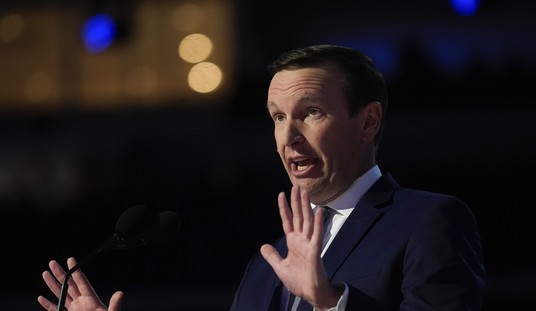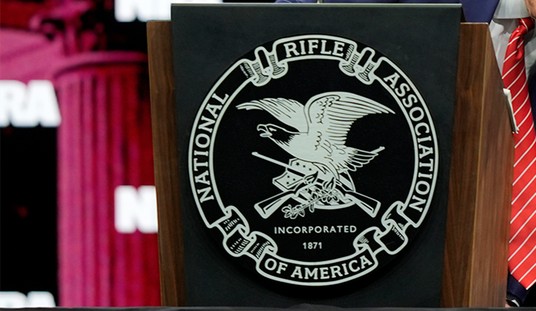In this article I endeavour to answer these questions, discuss possibilities, directions and ramifications. This is an attempt to predict what may happen under circumstances as they appear today. As Niels Bohr said, “Prediction is difficult, especially if it involves the future.” That means I am not attempting to be ‘accurate’, I am attempting to inform; the view is strategic and long-term. In the first part I discuss Egypt as a country. In the second part I discuss what matters and why.
A brief historical perspective
The very word “Egypt” evokes Spielberg-like images for all of us, and for good reasons. Egypt has been around since the dawn of recorded history. In a very real sense, Egypt IS recorded history. Unfortunately, most of that is a different Egypt from what presently exists. But does she matter today, to all of us? Why should your average American care what they do, what government they have?
Demography
In 1950 the population of Egypt was about 18 million (it is 87 million today; 2.5 times that of Canada). Of the 18, about one million were:
– Armenians living there since the Turkish massacre,
– French living there since Napoleon’s conquest,
– Greeks and Jews living there since Alexander.
These four groups essentially were the country’s economy. One of the first things Nasser did after murdering King Faruq was to expel all these people. (To be fair, it was not Nasser, it was his predecessor, who was then murdered by Nasser – it gets very complicated, but the group was one.) The economy of Egypt has not recovered.
What was left is composed of Egyptians (now erroneously called “Copts”) and the Arab occupiers that conquered Egypt in the First Jihad. The Copts today number about ten percent of the population. (IN the remainder, I call them all Egyptians, though this is technically incorrect.)
He also renamed the country “The Arab Republic of Egypt” – this new name is not without significance. In all of history, no Arab country ever had democratic rule. Democracy is anathema to Sharia according to all systems of Islamic jurisprudence. The very word ‘Islam’ means submission – while democracy means rule by the people. The two concepts are incompatible to the most basic degree. Indeed, even in Israel, Arab parties eschew democratic principles.
Islam is inherently anti-democratic in nature. All Islamic terror groups were foaled by the Muslim Brotherhood of Al Banna and Sayyib Qutb. This nature must not be cloaked by the Brotherhood’s historic willingness to use elections to reach power (e.g., Gaza).
Arab mind – psychological factors
Anecdote: In the army in 1970, I served in Gaza. My direct commander was Arik Sharon. I still vividly remember a basic lesson taught by him. We had Druse trackers in our unit (it was a special operations and intelligence unit). One day, we caught a terrorist that had just murdered an entire family of Gazan Arabs by slitting the throats of the children and hanging them upside-down in front of their parents, and then killing the parents (their crime was that the father operated an ice crème concession on the beach that the guys from Tunis desired.)
Our tracker wanted to beat the miscreant for information about his accomplices. Arik stopped him. He said, “if you want to convince him to tell a story, don’t insult him in public, never insult; do anything (that I don’t see) but never insult him openly.”
The Obama administration’s first act toward Mubarek was to publicly insult him. All US policy is relegated to garbage. No Arab will ever take him seriously or trust him for anything. Israeli’s are easier, we stopped trusting him after the third time he publicly insulted us. (We never trusted Mrs. Clinton.)
By publicly disgracing Mubarak, the administration made statements that will alienate any future government based on Mubarak’s men, which includes all the Armed Forces and industrial leadership.
What signal did the threat to cut aid send to King Abdullah of Jordan or to President Ali Abdullah Saleh of Yemen, as well as other Gulf allies? It means that as soon as an Arab leader has trouble, he is disowned. The current supreme guide of the Muslim Brotherhood, Muhammad Badi, gave a sermon in September 2010 stating that Muslims “need to understand that the improvement and change that the Muslim nation seeks can only be attained through jihad and sacrifice and by raising a jihadi generation that pursues death, just as the enemies pursue life.”
America has sent Egypt more than $1.2 billion in annual military aid, every year for over 30 years of Mubarek’s rule (as well as funding his predicessor, the Nazi Party member, Anwar Sadat). The means to subdue and control the Egyptian population were supplied by US taxpayer dollars. This is not lost on those people. By the way, Facebook is illegal in Syria and Gaza (and highly frowned upon in the PA). Use of it is a capital crime.
Egypt is not a ‘trivial’ country; neither is it Yemen, Tunisia or Jordan. Eqypt is, and always has been, THE cultural and political fulcrum of the Arab world – the France and Britain of the region. Egypt is the country that sets the mood and the trends; in literature, art, radio, cinema, industrialization, nationalism and mass politics. Arabs look to Cairo to show the way – even when they don’t like it (e.g., licencious Belly Dancing) they love it. As the Land of Pharaoh goes, so goes Islam. The resonance will be prolific and promulgate through the region. The balance of power will irreversibly go to Muslim hardliners.
There exist today four epicentres of Islamic terror (the tactic) and power (the strategy): Egypt and the Muslim Brotherhood, Arabia and the House of Saud, the Palestinian Authority and, Iran and the Ayatollahs. So far, the United States has fought the symptoms, and not the disease. The present administration ostensibly fights the symptoms while quickening the disease at each of its’ epicentres.
Persia delenda est … Ceterum censeo Persia esse delendam?
Why does Egypt matter today?
Egypt has a fundamental role in the energy economy. But, much more so than that, Egypt has a role as the most populous, and historically most significant, Arab country. The role of Arabia was traditionally limited to that of the keepers of Mecca and Medina the addition of oil came about from FDR’s intervention, before that oil had a role, albeit apolitical. While Egypt did not have a role in the transfer of two and a half trillion dollars into Arab coffers in the previous decade until the Great Recession, its symbolic value in the Arab mind is legion.
Egypt’s role in the 21st Century Energy Economy
Egypt is a major factor in the energy economy. Egypt is a net importer of oil as domestic production dropped below indigenous demand, but flow of oil, LNG and coal through the Suez Canal and the SUMED pipeline is critical. Oil production stands at about 660,000 barrels per day, while consumption is at 710,000 barrels. Crude oil production continues to decline. An Israeli wag posted on Facebook: “Dear Egyptian rioters, please don’t damage the pyramids. We will not rebuild. Thank you.” Wells developed by Israel in Sinai (Suez Gulf) are a large portion of Egyptian oil production. Egypt also benefits from Israel’s Mediterranean NG discoveries off Haifa (as do Cyprus and Lebanon).
Energy prices are on a steep upward slope. Just the suspicion that something may occur to one of the world’s major oil conduits drove oil above $100 per barrel (Brent Crude hit $103.37 on Thursday — $76 in August). The previous record of $147 is not that far away. All energy resources are driving up:
– uranium has also almost doubled in price;
– The US Energy Information Agency (EIA) recently revealed that in terms of energy content, US coal reserves are dwindling rapidly and are already well below 100-year reserves. (Coal, oil and all ores come in differing compositions that vary in energy content and production and use costs.)
OPEC announced $155 billion in spending to maintain capacity over the next four years, but demand is rising at an unprecedented rate.
Egypt does not produce oil for export but most Persian Gulf oil and LNG imported to Europe flows through Egypt; this is the single largest component of Egyptian Government revenue. Closure of the canal and pipeline would add about 6000 miles of transit cost around Africa (15 added transit days to Europe). About 5% of all international shipping traverses the Suez Canal. Egypt does export natural gas (though there is a moratorium on new export contracts since 2008). The only viable competitor to SUMED is the Israeli and Iranian governments-owned, Eilat-Ashkelon pipeline. (Yes, you read that right, for money, Iran cooperates with Israel.) Israel imports a small portion of its energy needs from Egypt via the El Arish-Ashkelon NG pipeline.
Where is Egypt likely to be headed?
In 1999, in the run-up to the Year 2000 Problem, Egypt was classed as one of the world’s most irrelevant countries, because there were almost no computers. In terms of electricity use, Egypt’s installed generating capacity stood at 23.4 gigawatts in 2008 – that is .269 kilowatts of electric capacity per person. Compare that to next-door-neighbour Israel, with 1,533 kilowatts per person – almost six thousand times the amount. While in the past decade, there has been progress, large portions of the population remain in very primitive living conditions. To 70% of the population, the price of wheat flour is the single most important economic factor in their daily lives.
World food prices hit another record in January. The UN Food Price Index has risen continuously for seven months and is the highest in its history. Middle East regime stability is tethered to wheat prices.
A feudal system needs stability, an illusion of a timeless order. The Muslim world has a small upper class, a sliver of a middle class and a huge underclass. The system is feudal by intension and design. Tyranny does not produce stability, only quiet, food availability does. Arab rulers buy ‘homeland security’ by exporting surplus populations and their terrorists to America and Europe. They spin hateful fantasies about America and Israel to direct their citizens’ anger. Their artificial stability fuels terrorism and the rape gangs and murders in our cities. Hizbullah now controls most Cocaine cartels in South and Central America.
In 2007-2008, Egypt, Yemen, Somalia and Bangladesh saw major food riots. If the Muslim Brotherhood take over they have already (repeatedly) stated that their first priority is genocidal war with Israel. Will US taxpayer dollars be expected to finance that? Authoritarian rule is a terrible yoke, a perennially sick economy and lack of food are far worse. Will participation in ‘democratic rule’ moderate the Muslim Brotherhood? Why would anyone say that?! It certainly did not have that affect on Hamas, the Palestinian Muslim Brotherhood; rather quite the opposite, it has become increasingly harsh.
What really is US policy and why is this significant?
The coming years are a transformative period for the entire world, as important as the fall of the USSR. Imperialism, oil, and the dollar, are the trends that matter; events’ handling means everything. (It is always easier for a government to print money than to be rational.)
A Pew Research Center opinion survey of Arab attitudes towards Jews from June 2009 makes the facts clear: 95% of Egyptians, 97% of Jordanians and Palestinians, 98% of Lebanese, 75% of Turks, Pakistanis and Indonesians expressed unfavorable opinions of Jews. Remember, most of them (except Palestinians and, to a lesser extent, Turks) has ever seen or spoken with a Jew; it is a capital crime for a Jew to step foot in these hell-holes. What these numbers show is that it makes no difference which regime rules. As long as Arabs are taught by their governments to hate Jews, there can be no peace.
Mubarek knows a secret most of the world is unaware of – Egypt today is the weakest it has ever been in all its long history. One bomb on the Aswan Dam and fifty million Egyptians may be washed into the sea. Rumor has it that when the Russians built the dam, they secretly placed such a device so that they could not be double-crossed. There are well over a million former Russians living in Israel.
What does the phrase “If Egypt should fall…” mean?
Tunisia was the closest the Arab/Muslim world ever came to democracy – women there could drive, learn, be professionals, there was limited freedom of speech and assembly, homosexuals were no longer slaughtered. The government fell in January and we still do not know what may arise in its stead.
Lebanon had limited democracy until the Civil War. In that War, vast numbers of Christians were killed, one of every three women were sexually violated. In January, the country was finally taken over by Iran. They can now lob their existing missiles into every European capital city, at will.
There is simmering unrest in Jordon, Yemen, Algeria, Syria, Arabia and other areas. Most of the unrest is simple – we want food, and we do not wish to work for it! Most ‘Arab unrest’, most of the ‘Arab street’ looks at UNRWA and asks why the Palestinians get free food and housing for 60 years and they still have to work? Your tax dollars at work!
Economist writes in a long article that they expect Egypt to be a democracy within twelve months. What is their definition of democracy? Gaza has a working democracy; Hamas was elected by the people. Homosexuals are thrown off roofs, Christian women are routinely raped, young girls of 6-11 are married to men older than their parents – that’s okay, the marriage is not allowed to be consummated until they reach the ripe age of 9. This is a democracy, Muslim Brotherhood style.
The House of Saud, the usurpers of the Arabian throne, are an Islamist epicentre.
Persia delenda est … Ceterum censeo Persia esse delendam?








Join the conversation as a VIP Member